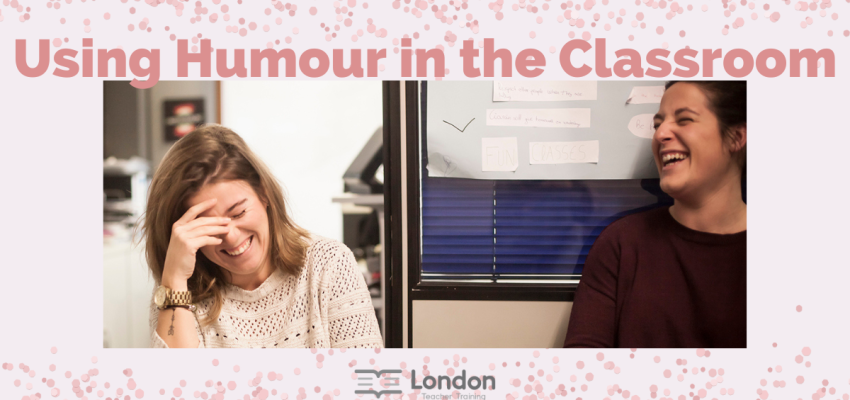Thursday, January 5, 2023

A bit of humour in the classroom can go a long way to making lessons more enjoyable for students and for the teachers themselves. Sometimes a teacher has a naturally funny approach to the way that they teach, and you may even find that the humour often comes more from the students. However, for some of us, it is not always easy to bring a little humour into our lessons. This might be because our use of humour (or lack of) is just a reflection of the way we are as people, or it might be due to the personalities in a particular class that we can’t quite crack. In this blog we’ll have a look at ways we can inject a bit of humour into our lessons as well as few things to avoid when it comes to trying to get a smile out of your students.
Like it or not, many students think that the teacher is there to entertain them, and they really do want to laugh during their lessons. So, if you do something wrong or silly, rather than trying to hide it or play it down, go with it. If you are prepared to laugh at yourself you will find your students will soon be laughing too and may also feel confident to laugh at themselves if they do something similar.
If you are giving your students a test, why not include silly answers to some of the multiple-choice questions. You could even include some funny pictures or photos on your handouts to get the students talking. My personal favourite thing to do when teaching grammar is to write silly examples on the board using the target language. This not only makes the students laugh, but also helps them to remember the grammatical structure you have just taught.
This could be something that you do in the last lesson of every month. Students can either translate a joke from their own language into English or do some research and find a joke online. Either way, it will ensure that the lesson starts off in a fun way with all of your students really keen to tell their jokes and practise language without even realising.
If you are not a naturally funny person, don’t try to make jokes throughout your class. The result will probably be blank stares from your students and awkward silences. Stick to your strengths as a teacher and if humour is not one of them, leave it to your students and react to their witty quips appropriately. Remember that having a sense of humour is not the first skill that is expected of teachers, but reacting to your students’ humorous comments makes you seem much more human.
Humour should be something that everyone can laugh at. If the joke is at the expense of one of your students, it’s important to put a stop to it immediately. There is a fine line between making jokes about someone and getting closer to bullying, so it’s essential to prevent that from happening in our classes.
Make sure that the humour that you use in class is appropriate for the students that you are teaching. It is better to miss out on a few laughs than to risk upsetting or offending your students. So, think carefully about what you are going to say before actually saying it. It is also a good idea to steer clear of any strong language as this may result in you losing some of the authority that you have built up as the teacher.
Finding out about your students is crucial if you want to bring humour into your lessons. The more you know about them and their interests, the easier it will be to share a laugh with them in class. This will also help you know what kind of jokes to avoid and which topics are most likely to draw a smile from your students.
There is a time and place for humour in the classroom and also for getting work done. Lessons in which the teacher is always cracking jokes might be fun, but there may not be that much learning going on. So, avoid excess and limit your comedy moments so that students know when it’s time to work. Also avoid using too much humour before an important exam. While it may help relax some students, it could also result in anxious learners becoming more worried and them not performing as well in the exam as they could.
Of course, we do sometimes want to use humour to make our classroom a more welcoming place, but the primary aim of humour should be to help students understand the subject matter. As we mentioned earlier, this could be through funny examples or through funny pictures on the board. In fact, being a terrible artist has helped me to create some of the funniest, most memorable images to help my students understand the language I was teaching.
Using humour in the classroom can lead to fewer classroom management issues. After all, it’s much harder to be disruptive if you have got a smile on your face. Humour helps keep your students engaged in the lesson and engaged students are much less likely to cause discipline problems. Be careful not to let it get out of hand though, as over-excited students can become even more disruptive and it’s much harder to settle them down.
We hope you find this blog post on using humour in the classroom useful and that it has given you a few ideas for your own lessons. The important thing to remember is that a relaxed, enjoyable classroom atmosphere is conducive to learning and student success. Humour can play an important role in cultivating this kind of learning environment, so why not give a couple of jokes or silly drawings a try in one of your next lessons.